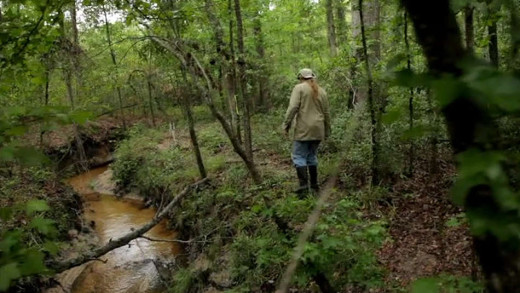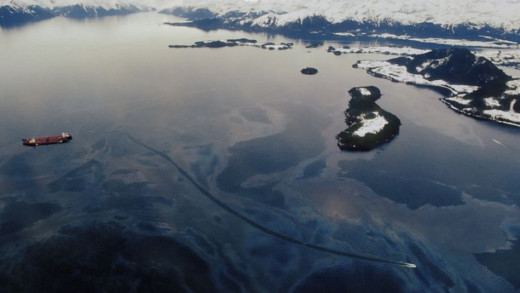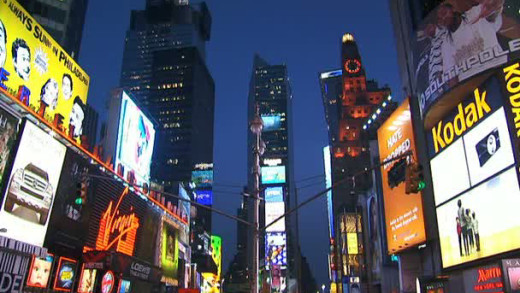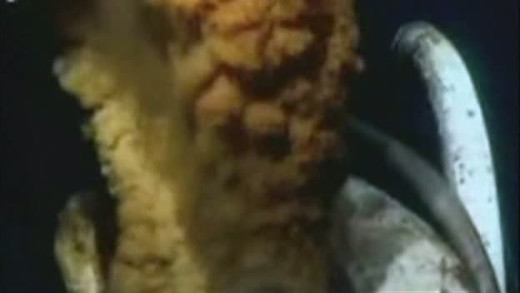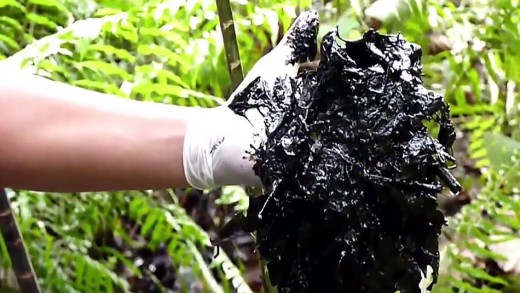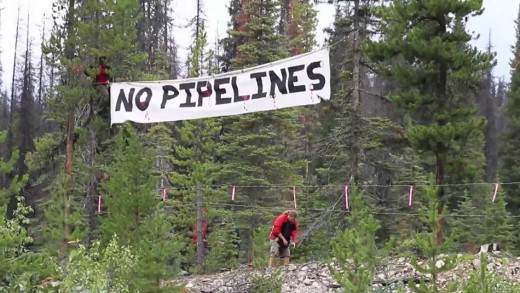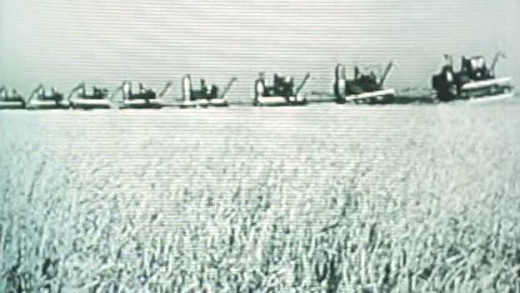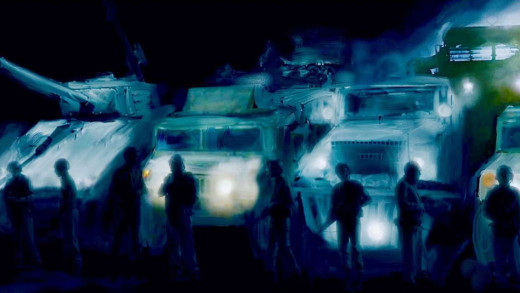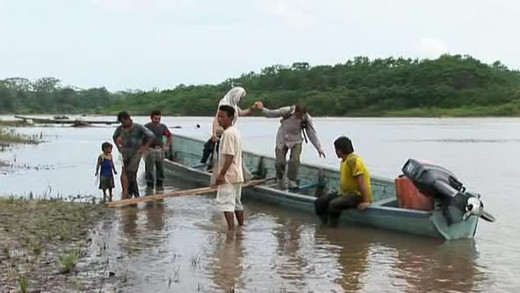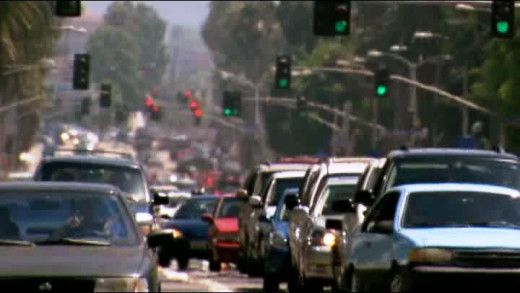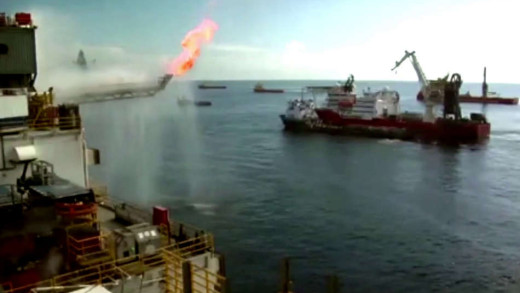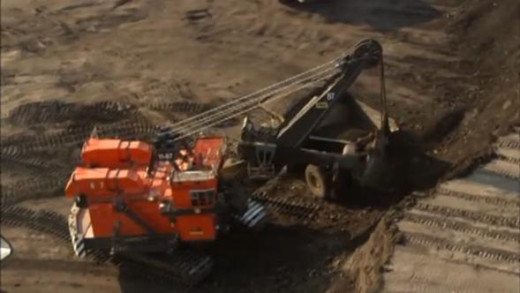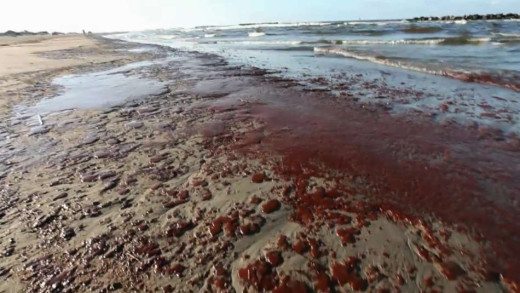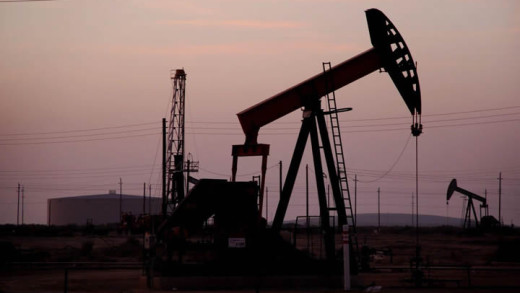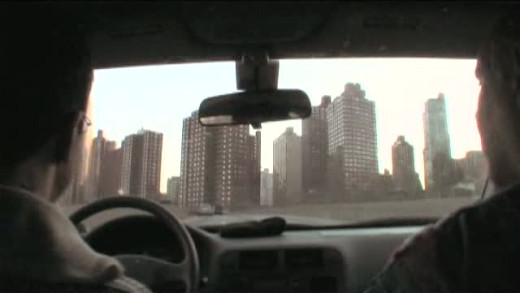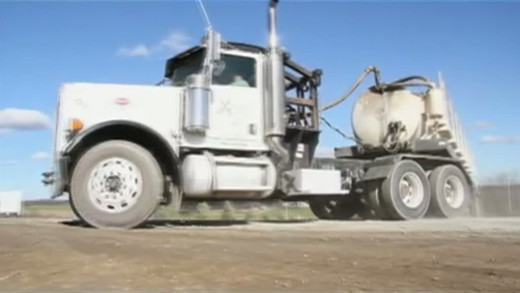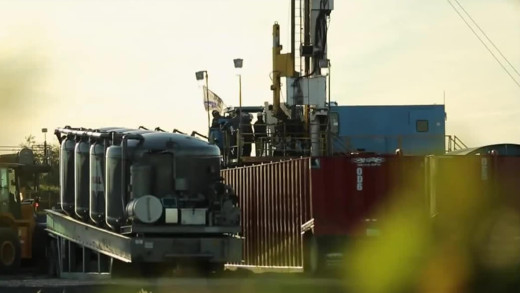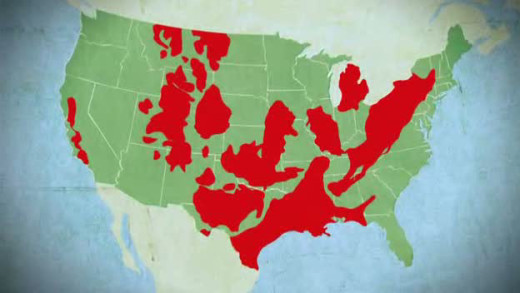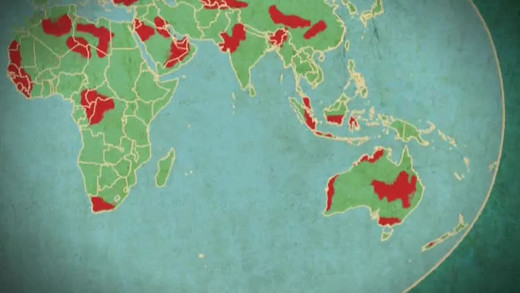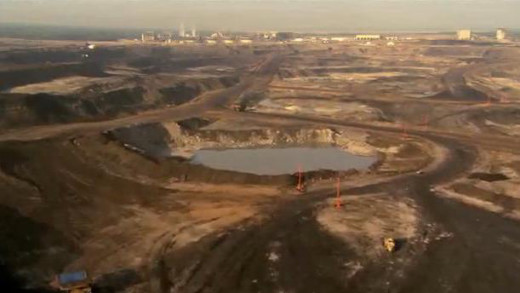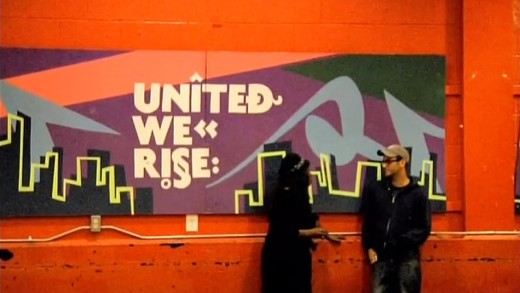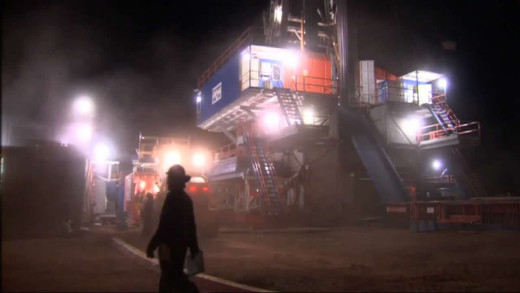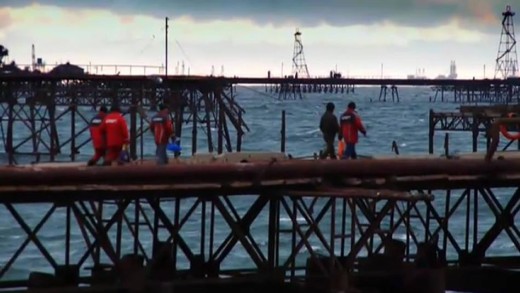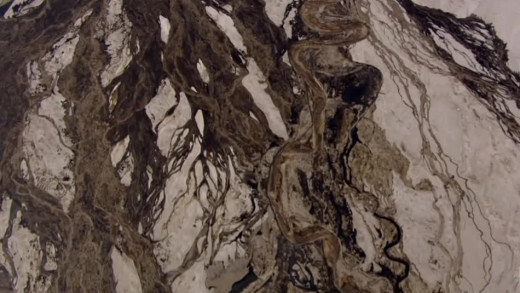Above All Else
Above All Else is an intimate portrait of a group of activists and landowners in East Texas, United States, who undertook a series of direct actions and put their bodies in the way to stop construction of the Keystone pipeline in 2012. The film follows David Daniel, a quiet, affable carpenter, whose backyard became the epicenter of a tree-sit that physically blocked the path of the controversial pipeline. This was the birthplace of the Tar Sands Blockade, an activist group that would go on to oppose the pipeline's construction all along its route. David's stance against Keystone brought together an unlikely coalition of allies, from Texan farmers to student environmentalists to fire-cracker great-grandmothers like Eleanor Fairchild. Above All Else is the story of David and his allies, their struggles, and what happened when they stood in the way of the most powerful industry in the world.
From styrofoam cups to artificial organs, plastic is perhaps the most ubiquitous and versatile material ever invented -- no product in the past 100 years has had more a profound influence and presence than synthetics. But such 'progress' has a cost -- no ecosystem or segment of human activity has escaped the strangling grasp of plastic. Addicted To Plastic investigates what we really know--and don't know--about this material. Talking to manufacturers, recyclers, cleaners, scientists and others, Addicted To Plastic shows plastic's toxic legacy and devastating ecological impact, provoking serious questions about health, food and the environment...
The film is a video essay by Professor Albert Bartlett essentially serving as an introduction to the concept of steady growth and doubling time, by taking us through the impacts and consequences of exponential growth on a finite planet. By making good observations of this impossible growth as applied to fossil-fuel consumption, population and the endless growth of which the global economy requires, this presentation gives us the basic tools to fundamentally understand that we've got a real problem on our hands.
In the early hours of March 24th 1989, the Exxon Valdez oil supertanker runs aground in Alaska. The ship discharges several tens of millions of gallons of crude oil. The incident becomes the biggest environmental assault in North American history, and in a flash, the news shoots across the planet along with footage of thousands of dead seabirds, sea otters and other marine life covered in oil, devastated. Thick black tides rise and cover the beaches of the once-pristine reefs of Alaska. Black Wave recalls this event, a generation later, by speaking with renowned marine toxicologist Riki Ott and the fishermen of the little town of Cordova, Alaska. They tell us all about the environmental and social consequences of the black wave that changed their lives forever—the legacy of the Exxon Valdez that still lingers today.
Blind Spot investigates the convergence of causes behind the current crisis of global industrial civilisation. By establishing the links between fossil fuels and the falsehood of perpetual exponential economic growth, Blind Spot explains the draw down of the natural environment, and how this globalised culture is systematically killing the world in its path. The energy depletion scenario known as Peak Oil—which came to pass around 2006—requires this culture to change drastically, with dire consequences either way. By whatever measure of greed, wishful thinking, neglect or ignorance, this current way of life cannot continue and the clock is ticking fast for change.
One year after BP's Deepwater Horizon rig exploded spewed a massive 170 million gallons of oil into the Gulf of Mexico, BP claims victory -- that most of the oil is gone. Investigative journalist Greg Palast sets off to test this claim in person and digs into the history of BP and similar incidents. Revealed is the corporations collusion with government, its strong political influence worldwide, along with the massive ecological impact of the BP explosion, set to last for decades...
Can't Get You Out of My Head: An Emotional History of the Modern World is a six-part series that explores how modern society has arrived to the strange place it is today. The series traverses themes of love, power, money, corruption, the ghosts of empire, the history of China, opium and opioids, the strange roots of modern conspiracy theories, and the history of Artificial Intelligence and surveillance. The series deals with the rise of individualism and populism throughout history, and the failures of a wide range of resistance movements throughout time and various countries, pointing to how revolution has been subsumed in various ways by spectacle and culture, because of the way power has been forgotten or given away.
The oil industry giant Chevron began operating in Ecuador's Amazon rainforest in 1964, and by the time the corporation fled the area in 1992, their toxic footprint had brought about 1,700 times more damage than the infamous Exxon Valdez oil spill in the United States in 1989. Chevron vs. The Amazon visits the scene of this epic and enduring crime, to uncover the acts that have killed the riches of the world's tropical paradise. The Amazon is home to hundreds of thousands of unique species of plants, animals, insects, landscapes, as well as an equally diverse human population—all under severe and continued stress and threat. Chevron dumped 17 billion gallons of crude oil and 19 billions gallons of contaminated waste water into the Amazon. Prior to fleeing, they attempted to hide this by covering the areas with dirt or setting the toxic dumps on fire. This film shows the totality of these crimes, and how the land and its people have suffered from devastating impacts over the ensuing decades, as the first step to holding corporate criminals to account, for justice and the survival of the Amazon and its peoples.
For the past four years Submedia has been visiting a camp of the Unist'ot'en of the Wet'suet'en Nation in so-called British Columbia in Canada. The Unist'ot'en continue to fend off intrusions to their land by rapacious oil and gas companies. The threats are large and systemic and involve the very base of life itself. This two-part series of short films document the direct actions that are effective in keeping the threats of oil and gas out. Stopping the corporations physically is paramount, as they'll stop at nothing...
Collapse
Collapse is a documentary film exploring the theories, writings and life story of controversial author Michael Ruppert, a former Los Angeles police officer turned investigative reporter who has authored books on the events of the September 11 attacks, documented widespread drug trafficking and other secret operations by the CIA, and written on the issue of peak oil and other energy issues. Using archival footage interspersed as illustration, Collapse explores Ruppert's conclusions that unsustainable energy and financial policies have led to an ongoing collapse of modern industrial civilisation...
Coup 53
The 1953 Iranian coup d'état was the overthrow of the democratically elected government of Iran in favour of strengthening the monarchical rule of the Shah for the purposes of foreign access to Iran's oil. BP was at the heart of this story. The operation was orchestrated by the United States under the name TPAJAX Project (Operation Ajax) and the United Kingdom under the name Operation Boot. While making a documentary about this CIA/MI6 coup, Iranian director Taghi Amirani and editor Walter Murch discover never seen before archive material hidden for decades. The 16mm footage and documents not only allow the filmmakers to tell the story of the overthrow of the Iranian government in unprecedented detail, but also leads to explosive revelations about dark secrets buried for 67 years. Working with Ralph Fiennes to help bring the lost material to life, what begins as a historical documentary about four days in August 1953 turns into a live investigation, taking the film-makers into uncharted cinematic territory.
Crude
As one of the largest and most controversial legal cases on the planet, Crude takes a look inside the $27 billion "Amazon Chernobyl" case, viewing the real-life high stakes legal drama set against a backdrop of the environmental movement, globalisation, hackneyed celebrity 'activism', human rights, multinational corporate power and rapidly-disappearing indigenous cultures...
Supported by a mix of archival footage, NASA shots of burning oil fields and historical film excerpts, Crude Awakening examines peak oil. From Houston to Caracas, the Lake of Maracaibo, the Orinoco delta, Central Asia's secretive republic of Azerbaijan with its ancient capital Baku and the Caspian Sea, to London and Zürich. The film questions the future of oil with leading authorities such as oil investment banker Matthew Simmons, former OPEC chairman Fadhil Chalabhi, Caltec's head of physics, Professor David Goodstein, Stanford University political scientist, Terry Lynn Karl and peak oil expert, Matthew Savinar...
Crude Impact examines the interconnections of human economic activity, the use of fossil fuels and the effects that these have on the environment, the climate and humanity. What is peak oil? And what does this mean of the issue of global warming? The film also investigates the questionable practices of oil companies, to which there are plenty of examples...
On 20th April 2010, the Deepwater Horizon oil rig exploded off the Gulf of Mexico in the United States, killing eleven workers, and spewing millions of barrels of oil into the ocean for weeks. Dirty Energy brings to light the personal stories of the Louisiana fishermen and local residents directly impacted by one of the worst environmental disasters in recent history, as they struggle to rebuild their lives and contend with emerging health crises related to the toxic dispersants used to clean up the explosion.
Dirty Oil
Dirty Oil looks into the strip-mined regions of Alberta, Canada, where the vast and toxic Tar Sands currently supply the United States with the majority of its oil. Through the eyes of corporate officials, politicians, scientists, doctors, environmentalists and communities directly impacted by the largest industrial project on the planet today, Dirty Oil travels to both sides of Canada to document the irreversible toll the tar sands take, further fuelled by the western world's addiction to oil...
Ecocide
On April 20th 2010, a massive oil rig exploded in the Gulf of Mexico. It was called the Deepwater Horizon rig, operated by the BP corporation. The resulting fire claimed the lives of eleven workers, while the exploding oil well spewed over 4.2 million barrels of oil into the sea over 82 straight days, killing the ocean and millions of animals. The disaster is considered the worst environmental catastrophe in the history of the United States. Ecocide profiles the disaster through the residents of Grand Isle, the last inhabited barrier island off the coast of Louisiana, United States, who thought they were living in paradise until the BP oil explosion hit their shores. Through the lived experiences of this island community, we see the devastating repercussions of the explosion, several years later, that continue to this day.
Energy War considers the continuing geopolitical consequences of the dependency on fossil fuels into the future. In the struggle for the last of the resources, countries all over the world are forced to further strategise and make strange alliances. Using the gas conflict between Georgia and Russia and the position of Saudi Arabia, Energy War travels through international markets for energy and asks: If oil and gas are scarce and expensive, where will countries turn to keep their economy going and their population warm and happy?
Following up from The End Of Suburbia, this film examines the rich interplay on the subtle relationships between the energy crisis, neighbourhood gardens and the collapse of the 'American dream'. Escape From Suburbia outlines potential solutions with interviews from individuals across the world who are brave enough to challenge their communities toward change...
Fracking Hell -- The Untold Story looks at the risks of natural gas development in the Marcellus Shale throughout the United States. From toxic chemicals in drinking water to interstate dumping of radioactive waste that cataclysmically contaminates water supplies, to fracking plans in major population centres including New York City -- are the health consequences worth the supposed economic gains?
Fracking In America takes a look at the continuing instances of water contamination and environmental damage occurring throughout the United States as a result of hydraulic fracturing--an industrial process used to fracture rock in the search to exploit natural gas deposits. As the frantic effort to extract gas accelerates, the impact of fracking expands also, with increasing pressures on fresh water supplies, continuing threats to health and wider ecosystems...
America's largest domestic natural gas drilling boom is in full swing and the Halliburton corporation claims it has refined a technique called 'hydraulic fracturing' that extracts natural gas in a "safe and environmentally friendly way". But upon examination, film-maker Josh Fox uncovers a trail of secrets, lies and first-hand evidence of intense water contamination and devastating environmental destruction...
Gasland Part II
Gasland Part II follows on three years later, to continue documenting how the stakes have been raised on all sides in one of the most devastating environmental issues rapidly spreading the globe. This sequel further enriches the argument that the gas industry's portrayal of natural gas as a clean and safe alternative to oil is a lie, where in fact fracked wells inevitably leak over time, and vent exuberantly more potent greenhouse gasses such as methane in cumulative effect, not to mention the continued string of cases of severe water contamination across the United States and even cases as far away as Australia. Gasland Part II follows deeper into these happenings, revealing yet more of an entrenched corporate collusion in the pursuit of exploiting dwindling 'natural resources'...
h2Oil
Canada is now the biggest supplier of oil to the United States, thanks to the Alberta tar sands—a controversial billion-dollar project to extract crude oil from bitumen sands, using a very toxic process that has generated international cause for concern. Four barrels of glacier-fed spring water are used to process each barrel of oil, along with vast amounts of electricity. The waste water is dumped, filled with carcinogens and other chemicals, into leaky tailings ponds so huge that the piles can be seen from space. Downstream, people and communities are already paying the price with contaminated water supplies and clusters of rare cancers. Evidence mounts for industry and government cover-ups. In a time when wars are fought over dwindling oil and a crisis looms over access to fresh water, which will we allow to turn out to be more precious to us?
How to Let Go of the World and Love All the Things Climate Can't Change travels the globe, from New York City to the Marshall Islands and China, to meet with people who are committed to reversing the tide of global warming. The film examines the intricately woven forces that threaten the stability of the climate and the lives of the world's inhabitants.
Spreading beneath Southlake in Texas, and a chain of other areas throughout, is an oil and gas rich Eldorado called the Barnett Shale field. Mining and energy companies are literally stampeding for a piece of the action with gas drilling and wells sweeping across the United States. Meet The Frackers travels through North America's suburban heartland to show the impact of a process called fracking, which is taking place on a panoramic scale. The parallels apply to Australia and elsewhere, where fracking is also spreading rapaciously with the drive to exploit sources such as coal seam gas. There's many warnings to be heeded from the ecological impact that's already been catastrophic throughout the United States, as one can see...
Oil Rocks--otherwise known as Neft Daşları--is one of the first and largest offshore oil-platforms ever built. The location is a vast industrial city in the middle of the Caspian Sea, ordered by the Stalin regime in 1949. 60 years on, Oil Rocks is still operational and the first western film crew in its history receives access. The result is this film which documents 200 kilometers of bridges, thousands of oil workers, hundreds of platforms, up to nine-story buildings, a park and a sports field--nothing less then an oil-rig 'Atlantis.' By combining archive footage from the Soviet era and interviews with workers, this film tells the story of the oil fields and the extremely hard work by those involved to this day.
Petropolis
Canada's tar sands are the largest industrial project ever undertaken--spanning the size of England. Extracting the oil and bitumen from underneath unspoiled wilderness requires a massive industrialised effort with far-reaching impacts on the land, air, water, and climate. It's an extraordinary industrial spectacle, the true scope of which can only be understood from an aerial view. Shot primarily from a helicopter, Petropolis: Aerial Perspectives on the Alberta Tar Sands offers an unparalleled view of the world's largest ever industrial project...
